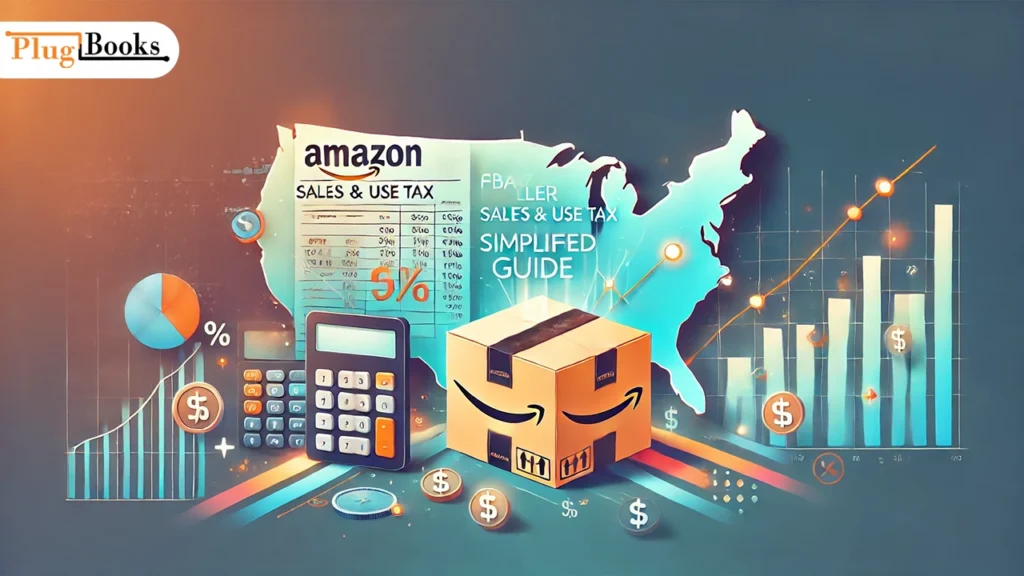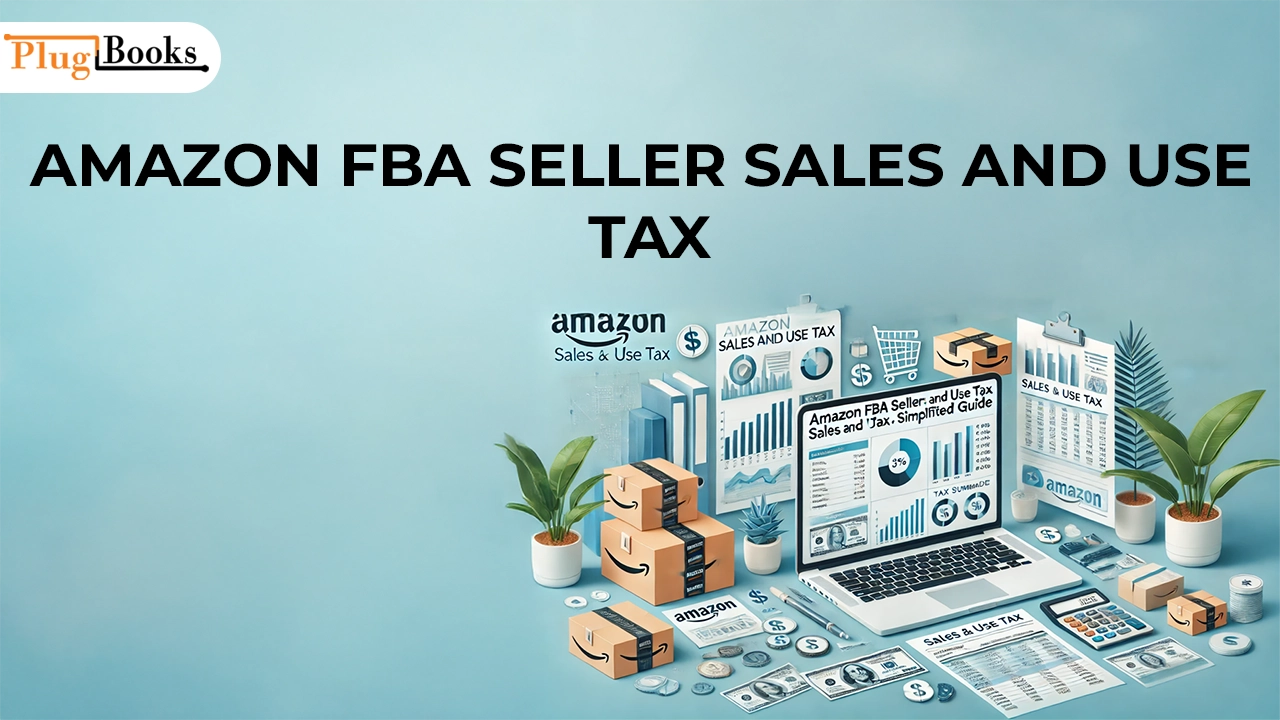Managing a profitable Amazon FBA company can prove challenging when negotiating the world of sales and use tax. Knowing your tax responsibilities helps you, as an Amazon FBA vendor, be compliant and avoid possible penalties. Keeping current is essential given the complexity of multi-state business, tax laws, and reporting deadlines. Let’s dissect the core of Amazon FBA seller sales and use tax to simplify and stress-free handle this important component of your company.
Sales and Use Tax: Questions for Amazon FBA Sellers
Sales and use tax is the tax applied on products and services sold, leased, or rented. For Amazon FBA sellers, this entails gathering consumer sales tax and forwarding it to the relevant tax authorities. Conversely, use tax applies when you purchase taxable items without paying sales tax and then use them within your state. For untaxed purchases, it’s basically the reverse of sales tax.
Because fulfillment hubs are multi-state, Amazon FBA sellers can have special tax issues. Storing your goods on Amazon’s network of warehouses generates a ” nexus,” a legal link in several states that could bind you to collect and pay sales tax in those jurisdictions. Knowing these Amazon FBA seller sales and use tax duties guarantees compliance and helps you avoid unanticipated problems.
Why Should Amazon FBA Sellers Give Sales and Use Tax Top Priority Concern?
Awareness of Amazon FBA seller sales and use tax protects your business more than it does only compliance. Ignoring your tax obligations could lead to audits, fines, and Amazon account suspension. Addressing sales and use tax is therefore absolutely vital for:
- Nexus Creation: Storing goods in Amazon’s fulfillment facilities generates a nexus in some states, hence you become liable for sales tax in those jurisdictions. This implies that you could have tax responsibilities even in cases when you do not physically operate in a state.
- Client faith: Appropriate tax management shows professionalism and openness, so fostering confidence with your clients. It also guarantees proper charging, thus preventing customer conflicts.
- Avoiding Penalties: Following tax regulations will help you avoid expensive penalties, interest charges, and legal disputes endangering your company. Being aggressive about taxes preserves your financial situation and reputation.
Calculating Sales Tax Nexus for an Amazon FBA Seller
A nexus is a legal word denoting a notable relationship between your company and a state. Here are the most often used methods nexus can be formed for Amazon FBA vendors:
- One of the most direct approaches to create a nexus is keeping your goods in Amazon facilities in a specific state.
- Economic Nexus: Usually determined by individual states, crossing a particular sales threshold—usually based on revenue or transaction volume. Though they vary, these thresholds usually set off $100,000 in sales or 200 annual events inside a state.
- Another nexus can be created by having contractors or associates working in a particular state.
Instruments to Determine Nexus
Use Avalara or TaxJar to identify your areas of tax responsibility. These systems track your sales automatically and send warnings on changing nexus requirements.
Strategies for Control of Sales and Use Tax Compliance

Managing sales and use tax need not be taxing. Use tax liabilities and follow these practical tips to keep on top of your Amazon FBA seller sales:
1. Register for permits allowing sales tax.
Register for sales tax permits in the jurisdictions you identify as your nexus states once you know them. Every state has a different registration system usually available via their Department of Revenue website. Before collecting any sales tax from consumers, make sure this is finished.
2. Set Your Amazon Seller Account’s configuration.
Configure your Amazon account to automatically handle sales tax. By computing and collecting taxes for you, Amazon’s Tax Collection Services can help to assure compliance. You still have to send those taxes to the state, though.
3. File and Remit Taxes Frequently
Depending on your sales volume, the state determines the frequency of tax filings—from monthly to yearly. Using technologies like PlugBooks.io will help you follow filing schedules and automate tax payment procedures, therefore avoiding penalties resulting from missing deadlines.
4. Keep Correct Notes
Record carefully all sales events, taxes paid, and state registrations. During audits or in case of disparities, these records are priceless. Your best protection against possible tax authority problems is well-organized records.
5. Keep Current on Tax Laws
Thresholds and tax legislation are often changing. To keep current, subscribe to updates from tax software companies or see tax experts.
Typical Difficulties and Remedies
Sales and use tax present difficulties for Amazon FBA merchants most of the time. These are many typical problems together with solutions:
First challenge: several rates for state taxes
Amazon’s global activities require negotiating different tax rates and regulations. Solution: Simplify tax computations and guarantee correct rates are applied at checkout using automation solutions such as PlugBooks.io.
Second challenge: retroactive tax obligations
Some states could demand back taxes for past purchases, particularly if you unintentionally created a nexus. See a tax attorney to minimize fines by negotiating voluntary disclosure agreements or payment schedules.
Third challenge: difficult filing systems
Every state has their own filing system and calendar, which adds layers of complication. Using tax software or outsourcing tools will help you to centralize your files, therefore lowering administrative load and guaranteeing accuracy.
Fourth challenge: audits and fines
Should differences show up in your tax returns, audits can become a time-consuming and taxing process. Solution: Maintaining careful records and thinking about funding audit defense services offered by tax systems.
In essence, conclusion
Maintaining compliance and avoiding possible fines depend on an awareness of and control for Amazon FBA seller sales and use tax. Although the procedure can seem difficult, correct tools and techniques will simplify tax management. Early tax compliance will protect your company and lay a strong basis for future success.
PlugBooks
Plugbooks is a powerful bookkeeping solution designed to simplify financial management for Amazon sellers. It seamlessly integrates with Amazon and eBay accounts to automate reports, manage the cost of goods sold, and streamline bookkeeping with platforms like Xero and QuickBooks. With Plugbooks, sellers can save time, reduce errors, and focus on growing their businesses.




